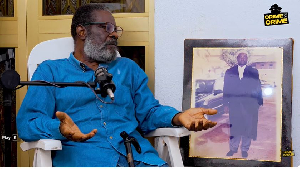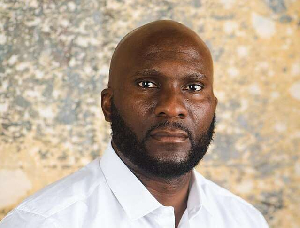By Dr. Michael J.K. Bokor
Thursday, February 27, 2014
My good friends, we have been quick to condemn our politicians for basing their political stunts on nothing beyond the making of all kinds of promises just to be voted into office.
We have been particularly unhappy that these promises are often made without any due consideration being given to existing economic realities but are bandied about just for political expediency in the hope that the unwitting segments of the electorate will buy into them and grant the politicians their wish.
Indeed, all politicians operating in Ghana in our time are guilty of making such “huhudious” promises. Some have been lucky to be given the nod while others have been spurned but are not yet tired of playing that trump-card.
Thus, promise-making continues to dominate political considerations. President Mahama is the latest to have pegged hopes on it as he confirmed in his "State of the Nation Address" to Parliament on Tuesday.
His announcement concerning the government's moves to implement a progressive fee-free senior high school education didn't turn my crank and I dutifully condemned it as a mere politically skewed intent and purpose. The economic situation won't allow such a policy to be implemented successfully. So also is the situation regarding other projects, especially the building of 200 senior secondary schools and district hospitals.
Hardly has my objection to such promise-making stunts sunk than the first piece of truth has emerged:
“Government has suspended plans to construct new district hospitals across the country, Health Minister has announced.
The government in the 2013 budget announced it was going to build district hospitals nationwide as part of efforts to improve upon health delivery in the country.
However, according to sector minister Ms. Sherry Ayittey, her outfit received the directive from the Ministry of Finance indicating that all such projects should be put on hold until further notice.
Joy News gathers that the decision is to enable government prioritize its projects as well as settle debts incurred by state owned enterprises.
Addressing Parliament on Thursday, Ms. Sherry Ayittey stated as a result of the new directive, communities hoping to benefit from construction of the facilities through private public collaboration, would have to wait for some time.”
(Source: http://www.myjoyonline.com/news/2014/February-27th/government-suspends-plans-to-construct-district-hospitals.php)
Is the government really bent on shooting itself in the foot? Or is it unsure of how to manage affairs so it doesn't erode public confidence in it?
Of course, nation-building can't be accomplished overnight. So, why is the government making so much haste to accomplish everything in one breath as if it doesn't want to leave anything behind for its successor to tackle?
I have all along insisted that a major problem facing us in Ghana is the inability of our leaders to think outside the box and act judiciously in the management of national affairs. As if setting itself up to compete with the Opposition, the government is taking on too much and over-extending its capacities only to hit the brickwall all too soon.
Why is it difficult for the government to work on the basis of PRIORITIES, isolating very important national issues/projects and tackling them before moving on to others?
I am certain that by carrying all its eggs in one basket and running this kind of rat race with itself, the government is only creating conditions to fumble and bumble all the more to the delight of its political opponents.
Oh, how I wish that it will hasten slowly in its bid to outdo its predecessors!! Given the peculiarities of the current socio-economic and political environment, it is only prudent that the government will cut its coat according to the size of the country’s economy, not itself and its ambitions. The truth is that whether by accident (traceable to unfavourable international prices for the main export commodities produced by Ghana) or by design (the government’s own inability to manage the economy efficiently or plain sabotage by its opponents pulling the levers controlling the economy), the going is really tough. The “there is not there” to warrant the initiation of all kinds of projects about which promises were made on the spur-of-the-moment during political campaign stunts. Thus, forcing to construct all those projects featuring in the promises will amount to worsening the economic situation and paralyzing itself. Ghanaians won’t forgive it if their living standards continue to worsen. Obviously, President Mahama and his team need to know that they can't satisfy everybody; that is why they must be circumspect in their dealings with Ghanaians. They need to know which project to implement with whatever resources are available instead of attempting to plough the entire field only to end up adding more white elephants to those that are already dotting the Ghanaian landscape and annoying Ghanaians all the more.
There is already enough of such white elephants to give Ghanaians the painful reminder that their leaders are part of the problem that they have to solve. Time to eschew promise-making?
What is the compulsion at all to warrant all these promises? It is not as if promise-making can be taken out of politics; it isn’t possible. But when it turns out to be the very long rope with which the government will hang itself, then, it gives cause for serious concern. And the government can’t free itself until it fulfills those promises that earned it the mandate to be in power. Self-redemption in this case won’t come easily, especially if what is unfolding is anything to go by. Who said “Tweeaaaaaaaaaaaa”? I shall return… • E-mail: mjbokor@yahoo.com • Join me on Facebook at: http://www.facebook.com/mjkbokor to continue the conversation.
Opinions of Saturday, 1 March 2014
Columnist: Bokor, Michael J. K.














